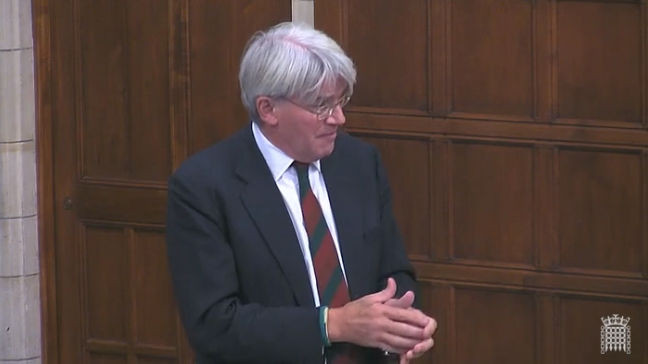Andrew Mitchell speaks in a debate on integrated foreign policy after the UK leaves the EU.

Mr Andrew Mitchell (Sutton Coldfield) (Con)
My hon. Friend and I have a difference of opinion on this matter. Let me be very clear: no one who has studied these things closely thinks that the Canadian and Australian model that he describes is superior to the British model. I can reassure him on this point. When David Cameron set up the National Security Council in 2010, he did so directly to address the point that my hon. Friend makes. The National Security Council provides for the co-ordination between defence, diplomacy and development. With the greatest of respect, that makes my hon. Friend’s proposal to put those Departments back into the Foreign Office entirely redundant, because the new mechanism delivers precisely the goal that he and I want to see—better co-ordination of policy in Government.
Mr Seely
I am not sure whether that is the case, but I will explore that idea in a few minutes if I have time.
...
Mr Mitchell
What my hon. Friend is saying about strategy is very good, but the National Security Council tends, to a very large extent, to be the creature of the Prime Minister. All I can tell him is that, when David Cameron was Prime Minister, the point that he makes about strategy was understood, and perhaps pursued more than it is today.
Mr Seely
I thank my right hon. Friend for that intervention and for being present; it is a great privilege for me that he is. He makes the point well about the need to normalise and institutionalise the strategy element so that, regardless of the Prime Minister’s determination to push through a strategy, the setting of strategy five, 10 or 20 years ahead becomes the norm. The Army does it when it looks at strategic threats out to 2045—I was listening to the Commandant General of the Royal Marines yesterday—but we are not doing it at a political level. I am worried that our excellent FCO diplomats and soldiers lack political leadership because we have become too parochial in this House. It is a pleasure that so many Members with a broader vision are in the Chamber. I will crack on, because I am about to run out of time.
...
Mr Mitchell
My hon. Friend makes a very good point about the BBC World Service. In fact, when I was Secretary of State, I increased by nine times the amount of money spent on the BBC World Service Trust. On the OECD DAC, if we make a promise to the poorest people in the world—Archbishop Tutu described that as a sacred thing—we should stick to it. The promise was 0.7%, and I am very proud that a Conservative Government introduced it. My hon. Friend is perfectly right to say that we should always review the nature of the definition. What he says about Britain’s peacekeeping effort is absolutely relevant, but the OECD DAC works very well for Britain, because it brings countries that do not spend their aid as effectively as we do up to the standard that Britain expects, so we gain from that.
Geraint Davies (in the Chair)
Bob Seely, you have 10 minutes left.
Mr Seely
I will wrap up in the next minute because I want to give the Minister time to respond. I do not accept that final point, because so few countries spend anything like the same amount on aid, and I think it just washes over most states. There is clearly a conversation to be had there.
